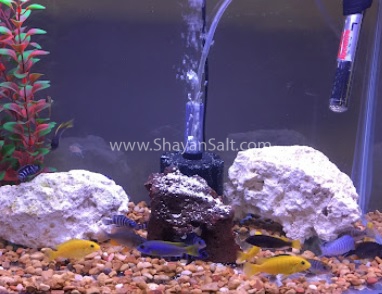
Animal feed salt is an essential addition to animal feed. Salt maintains the mineral balance of the animals at the right level and keeps your livestock healthy. It is advisable to opt for sea salt. because this type of salt also contains additional essential minerals and trace elements.
first of all Animals have a highly developed appetite for sodium chloride. Most plants provide insufficient sodium for animal feeding and may lack adequate chloride content, making salt supplementation a critical part of a nutritionally balanced diet for animals.
Why do animals need salt?
Common salt that animals eat contains two elements sodium and chloride. Its chemical name is sodium chloride. Both of the elements are required for mammal and 0.2% of the blood content is sodium which conducts nerves impulses, contract and relax muscles and causes the balance of water and minerals in mammals. salt helps absorption of amino acids and sugars in the intestine.
Animals get salt from various food resources and by feeding salt. mammals body excretes salt after using it in the metabolic processes so that salt has been fed in animal diets since ages. We should also consider that the salt added into animals feed also adds salty taste which helps them eat better. Another advantage of salt is helping release of saliva which is the primary digestion. Chloride found in salt is helpful to form acid hydrochloric which plays an important role in digestion.
Animal feed salt for intake of extra minerals
Also animals too need vitamins and minerals in their daily food supply. Sodium and chloride must not be lacking. also Sodium is important for the functioning of the central nervous system, while chloride regulates the balance between acids and bases in the stomach. Together these two essential nutrients keep the fluid balance at the right level. In addition to salt, livestock, poultry and pets all require an adequate supply of trace minerals in their diets. Above all supplementation ensures that animals to do not become subject to the potential side effects of chronic under-consumption of trace minerals.
The intake of salt and trace minerals is species-specific. Trace minerals fed as a salt additive include iron oxide, copper, manganese, selenium, cobalt, iodine, zinc, and magnesium. Another items frequently added to salt include phosphorous, calcium, sulfur and vitamins such as A and D.
Lack of salt in feed?
A lack of salt in your animal feed is easily remedied. By using animal feed salt as nutritional supplement, you can be certain that the animals are getting the necessary minerals. Salt deficiency can occur through feed that has too little sodium, unilateral fertilizer application of crops or low-quality grass or hay. A lack of salt can have dire results for the health of your animals. Muscle cramps, a harsh coat and reduced appetite are just a few of the symptoms that occur.
If there is a lack of salt fed to livestock for a long time, the excreted level of sodium decreases and the livestock starts eating and licking cloths, woods and excreta which is called pica (an appetite for things that are non-nutritive) as a result, the body weight of the livestock decreases and the milk production prorate.
The maximum amount of salt that the animal can consume depends on how much water the animal is receiving. Animals can tolerate even very high amount of salt if there is an unlimited amount of water available. Therefore, in order to get maximum production and to maintain the health of the animal, it is necessary that a balance should be maintained between the loss of salt from the animal s body and the gain from the diet.
Milk is 87 percent water and a livestock which is not drinking enough water caused by severe salt deficiency will have a significant drop in milk production and also become dehydrated, uncoordinated while moving, and even die from heart arrhythmia.





